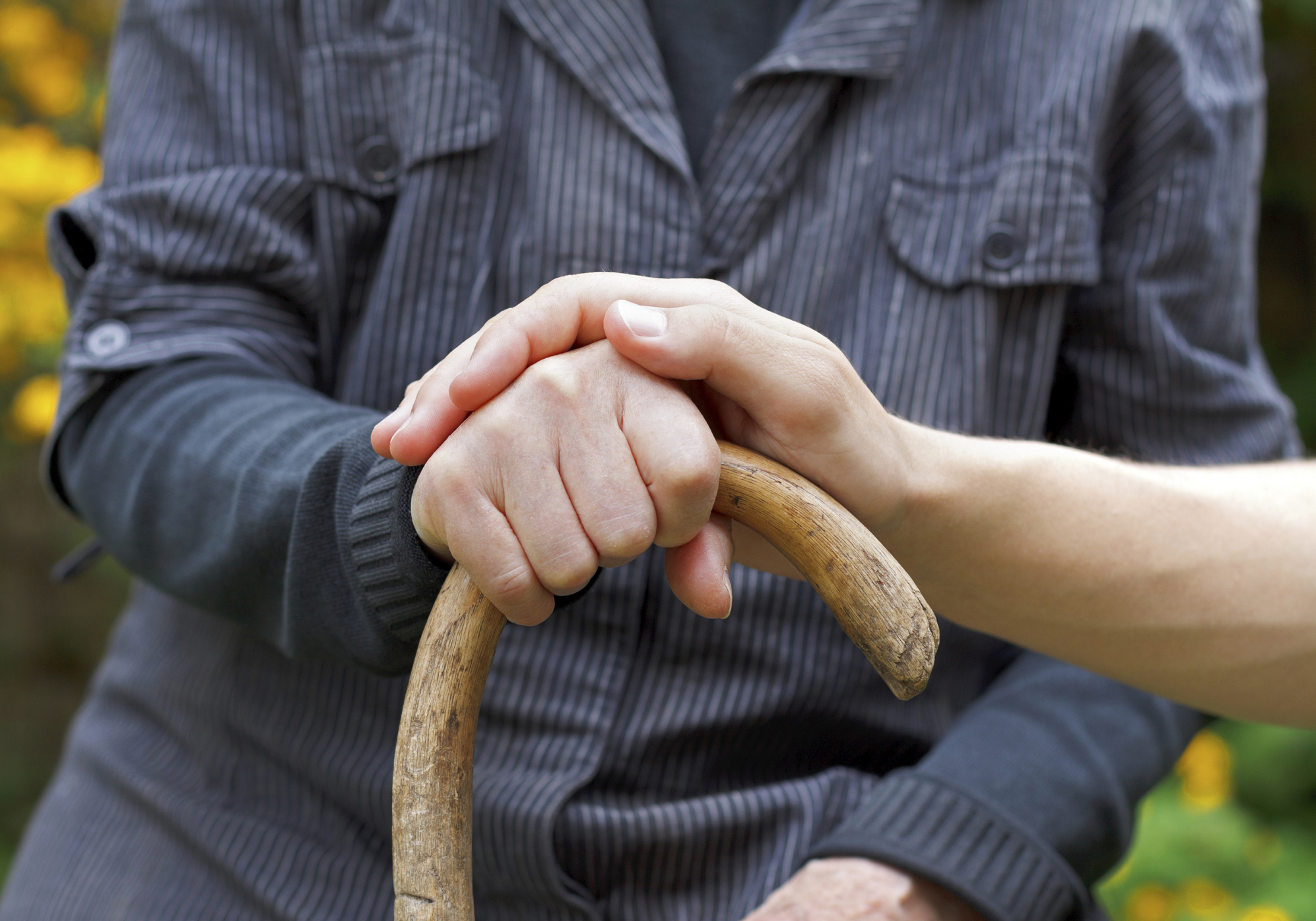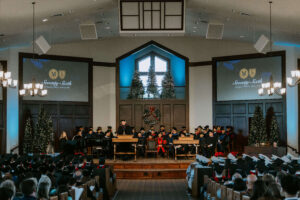
NASHVILLE (BP) — Alzheimer’s disease grips millions of Americans with fear and hopelessness daily, yet the Gospel can infuse a spiritual dynamic into the struggle, asserts a university psychologist and author. He suggests believers should prepare for the possibility that their lives could be upended by the increasingly common hardship.
“People will tell me beautiful stories of how their loved ones remembered the Lord even deep into dementia — sometimes through singing well-known hymns, reading familiar Bible passages or praying together,” Benjamin Mast, author of “Second Forgetting: Remembering the Power of the Gospel During Alzheimer’s Disease,” told Baptist Press.
More than 5 million Americans are living with Alzheimer’s — a type of dementia that causes problems with memory, thinking and behavior — and it’s the 6th leading cause of death in the United States.
An elder at Sojourn Community Church in Louisville, Ky., Mast is a board-certified geropsychologist and associate professor and vice chair in the Department of Psychological and Brain Sciences at the University of Louisville.
“It’s clear in Scripture that God remembers His people and takes care of them even when they have trouble remembering Him,” Mast said.
Tom James, pastor of Eastwood Baptist Church in Bowling Green, Ky., and a recent president of the Kentucky Baptist Convention, told Baptist Press what it’s like walking the Alzheimer’s road with his wife Jan, a mother of three who is battling the disease at age 57.
DeeEdrah White, whose husband Kevin White is executive director of the Nevada Baptist Convention and whose mother died last year after a struggle with Alzheimer’s, relayed some ways churches can minister to Alzheimer’s patients.
The title “Second Forgetting” refers to the way people, when devastated by Alzheimer’s, risk forgetting the hope and power of the Gospel and can forget God as their comforter, provider and redeemer. Mast wrote the book to help people in the midst of the Alzheimer’s journey experience the grace and love of Christ.
Short-term memory is the first thing “to go” when a person suffers from dementia, Mast notes in the book, but a person’s deepest and most treasured memories tend to stay with them longer. For this reason, believers need to hear the Gospel every day, he says.
“Despite the effect of the curse upon our physical bodies, [believers with Alzheimer’s] remain children of God, created in his image, and their identity and their life is still rooted securely in Christ,” Mast writes.
One particular man at a dementia day center, Mast recounts, became somewhat belligerent, believing he was being held against his will. “As the staff considered how to address this problem, one remembered that he was a Christian and suggested that someone read the Bible with him,” Mast writes.
“… Though he was still not sure of who I was or what he was doing in this strange place, as I sat next to him and read the Bible, the anger melted away. Soon, he was nodding in agreement with the words of God, whispering, ‘That’s right … mmm hmm.’ … For him, God’s Word was an anchor in the storm of his confusion. Reminded of the Lord’s goodness, he experienced peace.”
Mast writes, “By choosing how to live now, we are making choices about how we will live in the future…. Do you have a habit of daily prayer and Scripture reading? In developing godly habits we make them a part of who we are and embed them in our souls and procedural memory systems. All of these are more resistant to the effects of Alzheimer’s disease.”
A caregiver’s perspective
James, the Kentucky pastor, has met Mast and benefited from his medical knowledge combined with a pastoral perspective, James told BP. James and his wife have been married for 31 years and recently welcomed their first grandchild. Jan, who he described as the ideal pastor’s wife, was diagnosed with Alzheimer’s last year.
“They call Alzheimer’s the long goodbye, and it’s true,” James said. “Each day it seems like you lose just a little bit of them, and if you’re not careful you’ll spend your time dwelling on all of the plans that have gone by the wayside. Everybody plans what retirement is going to be like, what grandkids are going to be like.”
James has learned how important it is to minister to caregivers, he said, because “we have no idea what goes on when people go home.” He prays for patience.
“What happens is you find yourself getting frustrated with the person with the disease and then you get frustrated with yourself because you recognize that they can’t help it,” James said.
Keeping up communication with an Alzheimer’s patient is important, James advised church members. “Keep talking to them. Just accept that that’s who they are. I think sometimes we’re afraid that we’ll ask something or say something that might hurt them. So what ends up happening is they get hurt because people treat them differently and nobody talks to them.”
For a caregiver, don’t ask. Just do something, James said. “If you ask a caregiver, ‘Is there anything I can do?’ they’re going to tell you no or, ‘I don’t know.’ Just find something that you can do for them — cutting their grass, bringing them a meal, arranging for someone to sit with their loved one so they can go do whatever they want.”
Since his wife’s diagnosis, a church member has spent every Tuesday with her, taking her to the women’s prayer meeting, taking her to lunch and just hanging out with her, James said.
Though the Alzheimer’s trial is heavy and devastating, James emphasized that he made a vow to his wife and to the Lord when they married: “in sickness and in health” — never thinking it would happen to them. “You always assume the best,” he said. “A pastor friend made a statement to me one time: You love your spouse based on their position, not their performance.”
White, whose mother was married to a Southern Baptist pastor for more than 50 years, said she was more able to see that her mother was created in the image of God as the disease took its toll.
“As she became less herself the more clearly I could see that she was His creation, not for what she could do but for who she belonged to,” White told BP. “The last time we saw her, we wheeled her into the day room where they were having a church service and singing. She was trying to participate, and that image brought that thought to mind.”
White commended her mother’s church, Bethel Baptist Church in West Plains, Mo., as a great example of how to minister to a person with Alzheimer’s.
“They really worked at including her. They brought her into Sunday School class,” White said. “Of course, she wasn’t combative or given to outbursts, but what she said didn’t really make sense. They just would let her talk and then go to the next person. They would let her read out loud if she could. They kept her involved and integrated her into their lives. They made visits and sent meals and tried to help with cleaning and things that she had given up doing.”
Shortly before her mother died, White got the idea to put up a bulletin board in her room at the assisted living facility to show some of the things her mother did before she was sick.
“I feel like the caregivers need to know that’s a person who did all of these things and not just a bed to clean and a bother,” White said. “That’s an important thing to honor.”
For more information on walking the Alzheimer’s path from a Christian perspective, visit benjaminmast.com.














